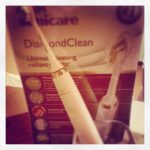Our San Antonio Distict Dental Society had a panel discussion the other night, “The End of the Solo Practice Era, Maybe, Maybe Not?” In my 8 years as a member, it was the most well attended event by far and there was certainly a buzz in the room.
I’ve been on panels before, and it never turns out as good as it seems like it could. I knew the moderator and most of the panelists personally, all very knowledgeable and insightful people. My wife and I were discussing it the other day, and we decided that the only way a panel could go really well is if everyone on the panel met beforehand and came up with a battle plan and rehearsed it almost like how you would a regular lecture. Without doing that, it’s kind of a mess. It’s almost like having a band get up on stage that’s never rehearsed before and everyone is coming from a different musical background. It’s just not going to work no matter how good everyone is. Panel discussions…it is what it is.
While the panel wasn’t great as far as getting a rhythm going, so many things surrounding this whole thing are worth talking about. For starters, a bunch of people actually showed up! One thing I’ve learned planning events and being a leader in organized dentistry is that getting people to show up to something is very difficult. For many dentists to take time out of their busy schedules to participate or attend anything is something to appreciate.
What does it mean? Why did so many people show up? A room full of local dentists saw that there was going to be a meeting with the words “the end of the solo practice” in the title and it fired them up enough to see what people were going to say. It’s a concern on a lot of dentists’ minds. Are we on a sinking ship? Is the model as we know it failing? Where is this profession going? Are corporations going to take over? Are we all going to go out of business and be forced to work for “the man”?
No matter where you are at in your career, these questions are on your mind. We see things. We hear things. There are alarming trends out there. Are there any experts out there that know where this is ultimately going? Is there any advice worth taking to secure your future and your career? People are angry. People are confused. People are scared. People want to be heard. People came to the event because those are the questions that face us right now in 2018. Just being there was a statement to your colleagues in the community that you are concerned with these questions. Being there was a statement that you believe in what you do. Being there was a statement that you believe that the future of dentistry should remain in the hands of dentists.
Dentists on the panel were from all different backgrounds, different stages of their career, and practiced in slightly different setups. Everyone talked about how they believed what they were doing was good or something like that. I get that. I didn’t really expect anyone to get up there and bash any particular business model or say that what they were doing was not good and should fade out as far as dental business models go. Clearly there are several business models that work well and that serve different needs for different types of patients. That’s obvious as far as I’m concerned. The question, though, which seemed really hard to stick to or get back to was “Is the solo practice era over?”. It didn’t seem like anyone answered that question. Most of the dentists on the panel weren’t even solo practicioners anyway! Lots of amazing points were made, and I appreciated every single dentist that got up there and shared their thoughts. Just that the thing happened and people came is great for our dental community and great for dentistry.
Before I share my thought on the question that was the foundation of the panel, I’ll be honest: I don’t even know what the definition of a solo practitioner is! Am I a solo practitioner? My wife and I practice together, we’re both general dentists, but we’re both here at the same time and own just one office. Can we be solo together or is that not solo enough? I do a lot of interdisciplinary treatment, where I refer patients to specialist colleagues of mine in different
offices. We collaborate and work together, but we aren’t under the same roof. Since we work together, does that disqualify us from being solo? How solo do you have to be to be a solo practitioner? Do you have to be a jack of all trades dentist that does your own ortho and places your own implants, doesn’t refer anything out? How solo do you have to be to be considered solo? I’m kinda solo.
I think the solo practice era is coming to an end, sort of. Having one doctor in one office is so inefficient when compared to having multiple doctors in one office. I predict a time will come very soon where it doesn’t make any financial sense to practice solo. Dentistry is becoming so high tech and more specialized. It’s impossible to stay up to date on all the latest advancements in every specialty in the field. Groups of dentists can provide better care by working together,
and if can happen under one roof, case acceptance is better. Theoretically.
There’s just one problem. Solo practice is where all the top talent still wants to be. All the best dentists I know are maverick type of folks. Maybe it’s because I live in Texas, but that independent spirit is a driving force in many dentists I know that lead the way in just how good you can be as a dentist. They like doing things their way and don’t want some company or even some other dentist telling them what to do. The top clinicians that strive for excellence in patient care all seem to strive for excellence in team building and practice building. It’s kind of all the same to them. I think for many dentists, corporations and groups are a great place to start, a great place to finish, or maybe a great place to stay. There’s still that group of dentists, though, that wouldn’t work well in that environment, and private solo practice is where they can excel and bring great value to the profession and to their patients. I hope that private solo practice always remains a choice for those who want it.
What if it goes away? What if the only way to be a dental care provider is by working for a big business that makes a lot of decisions for you? The result could potentially be that those free thinking, maverick type of folks won’t have much interest in dentistry. They’ll get into it and burn out and find something else to do, or they’ll avoid it from the get go and find themselves in another industry.


